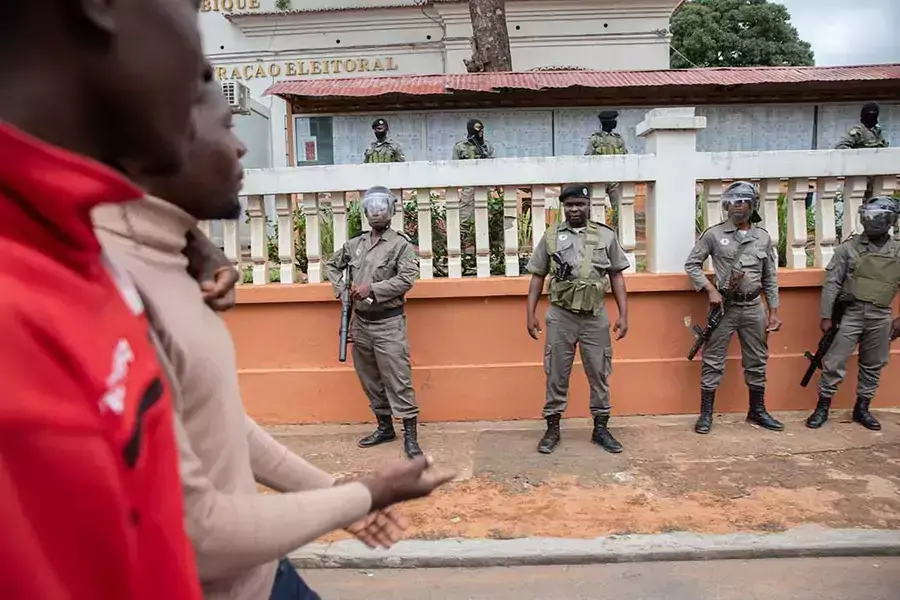The government’s heavy-handed response to recent local elections may spell trouble for Mozambique’s security and democracy prospects.
In 2021, audacious terrorist attacks in northern Mozambique made headlines, attracting global attention to a crisis that had been underway for several years, and prompting French energy giant Total to declare force majeure on its $20 billion liquefied natural gas project off the coast. At the time, analysts in the region and beyond stressed that in addition to tackling the security threat of violent extremists, addressing mistrust of government and local perceptions of disenfranchisement would be essential to stabilizing the situation, because those factors had created a grievance base in which militants found support.
Today, multiple harrowing crises compete for international attention, and there is relatively little focus on northern Mozambique. President Nyusi has called for Total to resume its work, even as military contingents from Rwanda and the Southern African Development Community continue to be present on the ground, and the extremist threat persists. In fact, the United Nations recently decried the world’s neglect of the issue, noting that the humanitarian response in the region is severely underfunded.
Mozambique’s latest municipal elections, and their aftermath, indicate that efforts to restore trust in government have also been low on the priority list. Security services assaulted and harassed opposition candidates, supporters, and journalists attempting to cover the elections. Some areas experienced internet shutdowns immediately after the polls closed. Discrepancies in the vote tabulation process and documented instances of outright vote-rigging served as the backdrop for the announcement of a near-sweep for the ruling party. Opposition celebrations turned to protests, some of which were met with a lethal response. Mozambique’s own courts, not noted for their independence, have ordered reruns and recounts in several cities. Prominent figures within the ruling Front for the Liberation of Mozambique (FRELIMO) party have denounced the heavy-handed tactics.
The lengths to which FRELIMO went to ensure victory and its apparent disdain for voters do not bode well for the general elections slated for next year, nor for efforts to address the root causes of instability in Mozambique, where cost-of-living increases and drawn-out corruption scandals have brought citizens out on the streets several times this year. It should not take more terrorist attacks to draw attention to Mozambique’s problems, or to the dangerous and growing gulf between the government’s stated commitment to democracy and the reality on the ground.

